Here are some photos and descriptions of every research project I've been involved in. Share yours!
As a scientist (or former scientist?) who has recently complained about the content on #science and has more recently come across great, in-depth posts on personal research topics involving things like quarks; I want to encourage everyone to share their own research whether it is written in a way that is accessible to most people (a special challenge for most scientists!) or with all the field-specific jargon you love.
Since I'm asking, I will be the change I want to see in the Steemit world and start with brief summaries of all the research I've been involved with. If people seem interested, I will do longer posts on the individual projects in the near future.
Side question: Should we start having Science AMAs?!
Ok, here are all the research projects I've been involved in (Still Working on This Post But Wanted to Get it up):
1. Studying the Lake Bogoria ecosystem in Kenya
Lake Bogoria is a Rift Valley lake that for extra bonus points is alkaline and has thermal features! Flamingos flock here to eat the spirulina that grows so well in these kinds of lakes. I observed flamingos, counted invertebrates from muddy sediment samples, took water quality readings, and used my free time to explore the lake and nearby community.
2. Recording Monkey Behavior in the historic ruins of a former capital of Sri Lanka
This was one of the best research projects ever. I basically followed a family/tribe of monkeys around through the jungle in the scenic ruins of a former capital of Sri Lanka. Every few minutes I was supposed to take detailed notes on what my monkey was doing or which species of plant it was eating. Making life a little more exciting was the fact that there were illegal traps set out in the woods and I even tripped a few!
To see more great photos of Toque Macaques, check my post here.
3. Isolating Bacteria from Superfund Sites that Eat Harmful pollutants

This was a cool project! We went to a really polluted Superfund site, grabbed some dirt, and used bacteria that were already living in that dirt to find species that could use a certain family of pollutants (PAHs) as a food source! I then used UV light to further breakdown some of the (potentially harmful) byproducts the bacteria made.
4. Using Coral as Records of Historical Climate and Ocean Conditions
While I spent a lot of time reading up on this and trying to make it happen, I didn't end up doing this for my PhD research. The concept is amazing though. Just like tree rings can be used as a record of climate going back thousands of years (now with even seasonal precision!), some species of coral can be used as a record of ocean temperature, pH, salinity, etc. going back centuries. The concept and technology that makes this possible is kind of crazy. I won't get into it here, but look up isotopic fractionation and elemental ratios and the equipment that is capable of measuring them (ICP-MS) if you are interested.
5. Using Algae for Wastewater Treatment and Biofuel Production

My PhD research focused on using algae to improve the quality of water leaving wastewater treatment plants with the added benefit that the algae could be used to create biofuels. The whole concept of wastewater is shifting to one of resource recovery. Wastewater contains lots of valuable things that could be put to great use if properly separated: water, nitrogen, phosphorus, carbon, and much more!
The goal of my research was to see if special species of algae or algae that occur naturally at wastewater treatment plants could be used to remove additional nutrients (viewed as pollutants in a wastewater context, but as fertilizer in an agricultural one) and then be utilized as a source of biofuels (methane, biodiesel, ethanol, etc).
I found out lots of interesting things, but in short, algae worked really well at removing more nutrients from wastewater effluent and in several ways it worked even better in the company of bacteria and other microorganisms that were present. Getting biodiesel from algae can be a somewhat tricky process and maximizing the concentration of lipids in algae required a delicate balancing of nutrients so the algae ended up being short on one at the end. Getting methane from algae or other decomposing organic material is much easier and may be the best way to go with this concept, especially since wastewater treatment plants already put off lots of methane and we are building natural gas power plants like crazy right now.
You can download my dissertation here if you get really interested in this topic!
6. Project Drawdown - 100 Solutions for Reversing Global Warming
I already wrote about this here, but in short, I was a research fellow for Project Drawdown and got to research lots of interesting climate solutions such as growing bamboo, building with wood, multistrata agroforestry, and other agricultural practices that sequester tons of carbon.
Flamingos and thermal features at Lake Bogoria, Kenya
The (much younger) author holding a healthy, but drugged (ketamine!) monkey for weighing, measuring, etc.
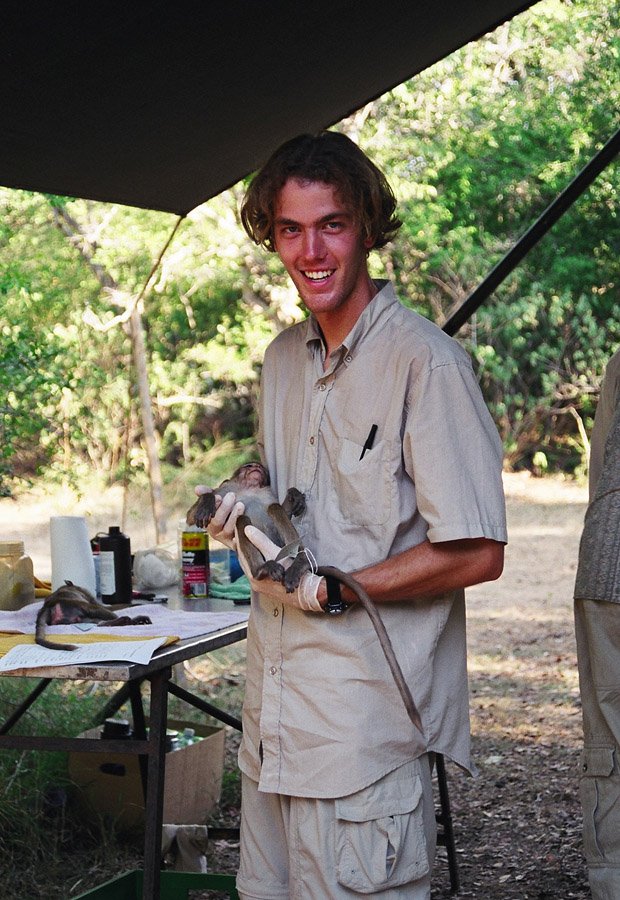
Drawdown bookcover.

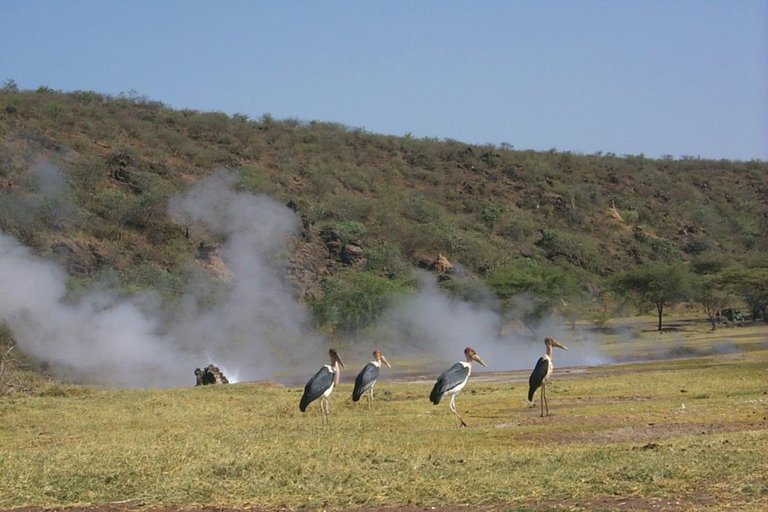
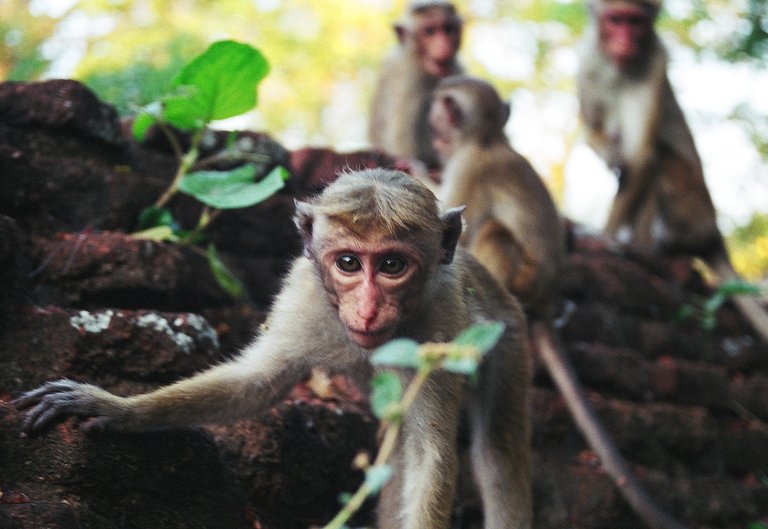
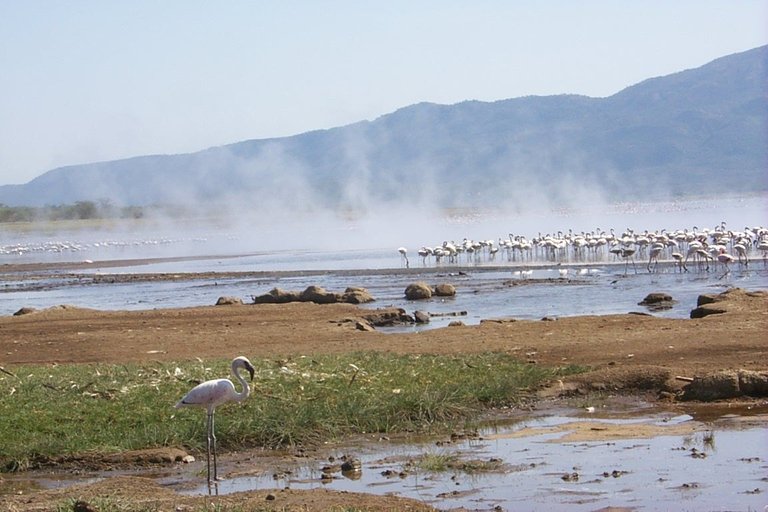
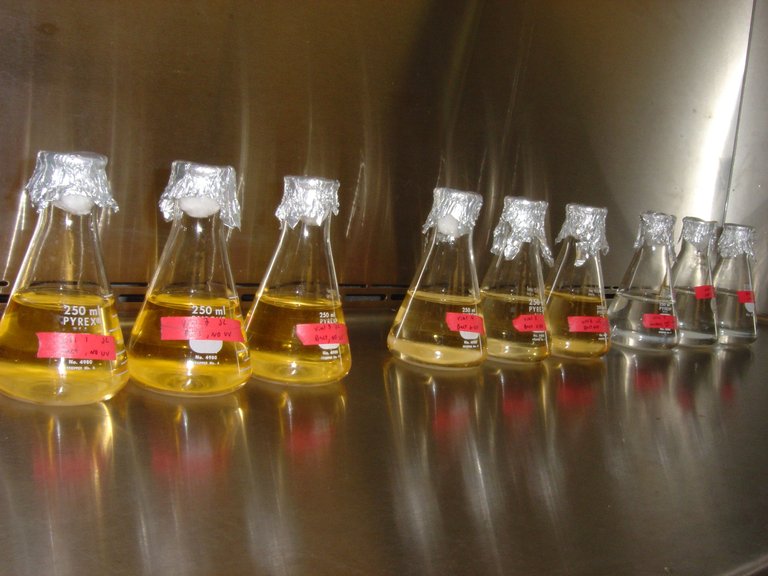
Should we start having Science AMA's? @lemouth and I have talked about doing this for quite a long time now. But we have never pulled the trigger. We actually had hoped to recruit more people to help with the @steemstem project and could use that to help attract outside scientists to maybe do an AMA as well ( the project account could ensure their post gets voted on for a good reward ). However all of this takes manpower and a non-frightening science trending page (people get scared off when they see the weird stuff that floats here at times). So it ends up being quite challenging.
As for my research, I currently am employed by a small pharmaceutical company as a research scientist where I work on a rare genetic disease (can't disclose which). One of the unfortunate side effects with working for pharma is all of the NDA's I have signed and the fact that I can't really discuss all that much about what I am doing. In the past my research focused on the kinetic and biophysical characterization of DNA replication enzymes/complexes. I did a lot of really fast timescale (using things like stopped flow fluorescence spectroscopy, or rapid quench instrumentation) experimentation looking into the actual kinetic mechanism that some of these enzymes employ. One would think that considering all of the time already spent studying these that they would be pretty well figured out... but they are surprisingly still not really polished out. Many aspects of their mechanisms are not nailed down with a good degree of certainty. This is where my publications attempted to come in ( for a few enzymes from a few specific model systems at least!). They still get citations so I guess I did some okay work!
I'm a biomechanical/biomedical PhD student modelling the brain in an effort to work towards an Alzheimer's cure. If you do ever decide on running some kind of AMA system, and people are interested, I would be happy to field questions.
This would be great thanks for letting me know! If there is interest in such a thing from the community we can organize them in general.
Let me know how I can help. I'm not sure I understand how steem projects function yet. I joined the chat channel but then chat has been down a lot.
Yeah, the chat server bit the dust, so user @riverhead had to come up with a work around or so he posted a few days ago.
There is no real organization to how the projects function, we are sort of figuring it out as we go along :)
No manual for that :D
Oh and thanks for providing the research summary! It sounds interesting and important (and mysterious!)!
I think @justtryme90 summarizes the issue very nicely, and there is not need to repeat.
I am a theoretical particle physicist, and I (try to) regularly post about my field, my own research sometimes, and connected issues. We are also doing our best with the steemSTEM project, but the lack of manpower is hard.